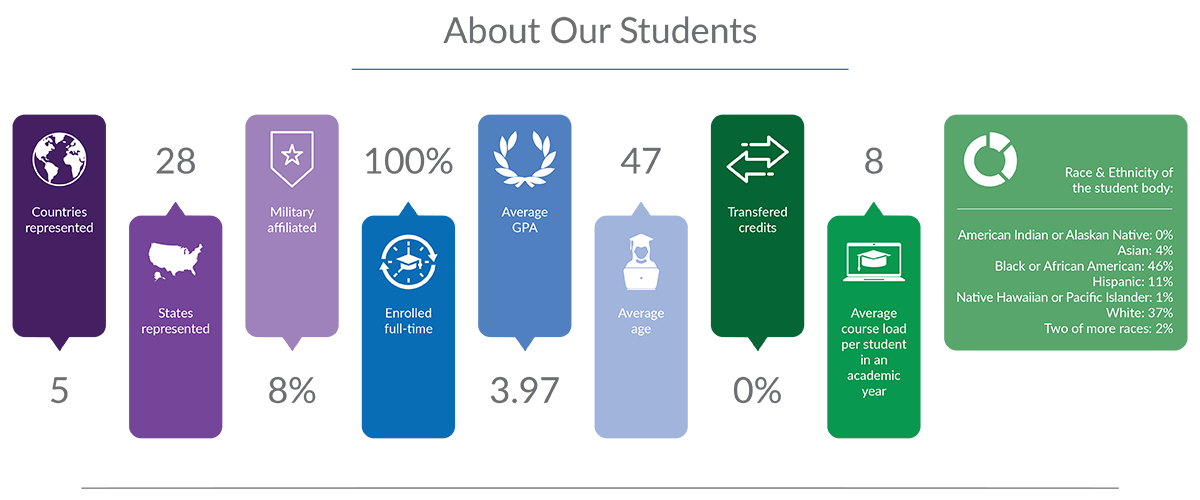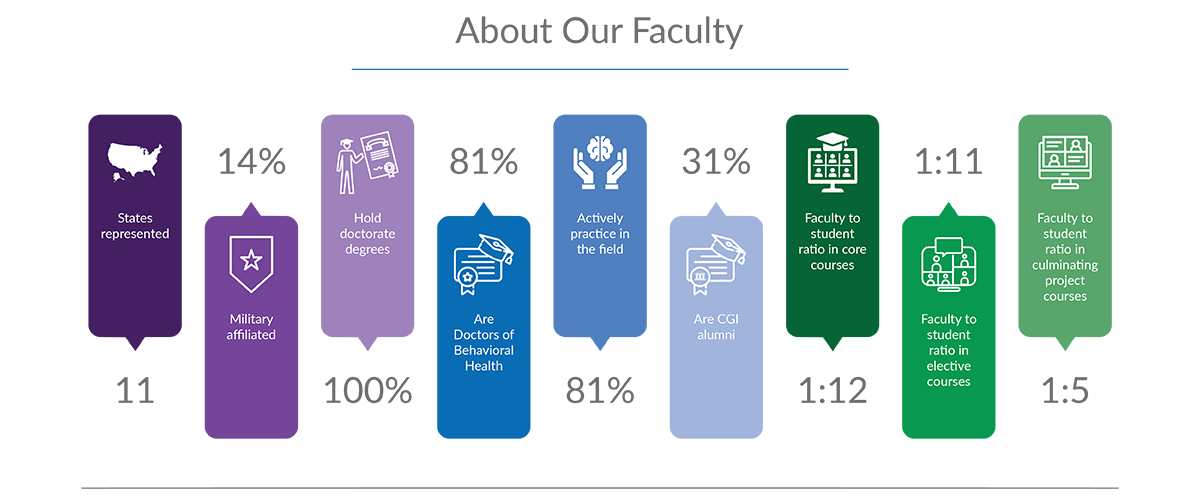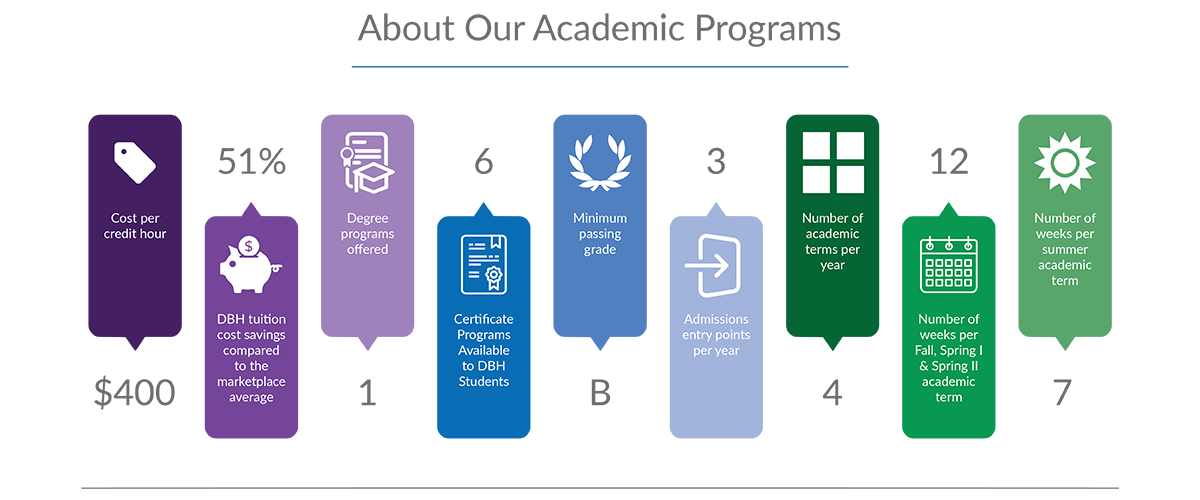General Information
Name of Institution: Cummings Graduate Institute for Behavioral Health Studies
Address: 2111 East Baseline Road, Suite E1, Tempe, AZ 85283
Year Founded: 2015
First Accredited: 2019
First Accreditation Renewal: 2022
Second Accreditation Renewal: 2027
CEO: Cara English, DBH
Accreditations and Agency Contact Information:
Distance Education Accrediting Commission (DEAC), 1101 17th Street NW, Suite 808, Washington, D.C. 20036, Phone: (202) 234- 5100, Email: info@deac.org, https://www.deac.org
View the DEAC Student Achievement Disclosure for the Public.
State Approval and Contact Information:
Arizona State Board for Private Postsecondary Education, 1740 West Adams Suite 3008, Phoenix, AZ 85007, Phone: (602) 542-5709, Fax: (602) 542-1253, www.azppse.gov or www.ppse.az.gov.
State Licensure:
Cummings Graduate Institute for Behavioral Health Studies is currently authorized, licensed, registered, exempt or not subject to approval regarding student enrollment as outlined on the State Authorization and Accreditation page. Cummings Graduate Institute works with states directly to ensure that authorization or licensure is necessary and that required approvals are secured. While we do monitor the laws in each state, authorization of distance education is a dynamic environment and prospective students should check Cummings Graduate Institute’s website often for updates.
CGI cannot confirm whether the DBH Program meets educational requirements for professional licensure in any state at this time. Students are advised to contact state licensing boards to determine whether the DBH program meets educational requirements for licensure in the state where the student resides. Students understand that they are responsible for researching their state laws and workplace/site policies related to use of the Doctor title as a Doctor of Behavioral Health.
Government Authorized Foreign Student Programs:
Cummings Graduate Institute for Behavioral Health Studies does not participate in any student visa/I-20 program.
Participation in Funding Programs:
Cummings Graduate Institute for Behavioral Health Studies is accredited by the Distance Education Accrediting Commission (DEAC). Cummings Graduate Institute is not qualified for Title IV funds at this time and does not have a IFAP School Code.
Cummings Graduate Institute Scholarship Programs:
Cummings Graduate Institute for Behavioral Health Studies offers scholarships to both returning and first-year students enrolled in degree-seeking programs. Scholarships are available on a limited basis each academic term. Funding is based on academic merit and consideration is given to all students who apply.
Scholarship information is outlined on the Scholarships page. Questions about institutional scholarships can be directed to scholarships@cgi.edu.
Mission & Description:
Mission:
Cummings Graduate Institute of Behavioral Health Studies is dedicated to disrupting healthcare by preparing entrepreneurial integrated care professionals through innovative & affordable quality distance education programs, grounded in the Biodyne Model, and focused on delivering human-centered care, population health improvements, and medical cost savings.
Areas of Special Focus:
Behavioral Health, Integrated Healthcare
Description of Institution:
Cummings Graduate Institute for Behavioral Health Studies is a private, nonprofit, DEAC-accredited institution offering graduate and professional behavioral health education through a virtual online campus. Cummings Graduate Institute takes great pride in awarding the unique and innovative Doctor of Behavioral Health degree, referred to hereafter as the “DBH.”


































